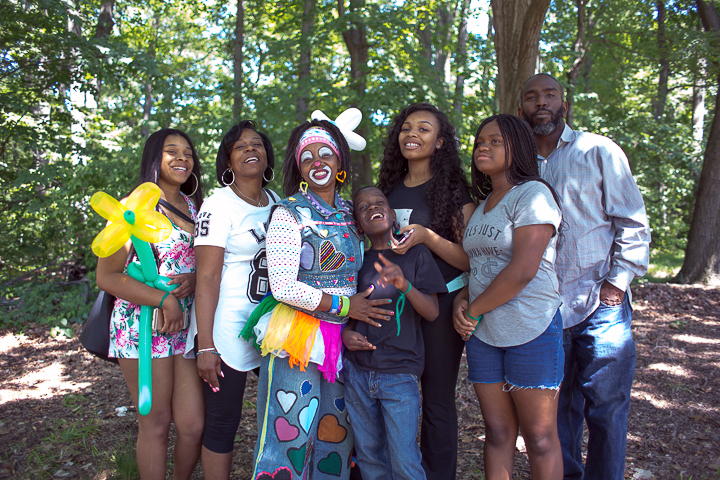Focusing the Mission
People in crisis have urgent needs that must be met, but such responses cannot stop after the crisis. We must augment our response to primary issues — of homelessness and housing instability, hunger, escape from domestic violence, or substance use recovery — with a sustained, multi-layered response. Only when we address the whole person, responding to their individual, complex and ongoing experiences, can they move beyond crisis toward well-being and thriving.
Though we’ve supported programs in Detroit and Southeast Michigan since 1925, in recent years, we’ve taken the necessary step to reassess both community needs and the ways in which we fund them. We observed diminishing government supports for the already stretched social safety net, coupled with steadily increasing needs in Detroit and beyond. We understood change was due.
We learned from our grantees and community partners about the gaps they witnessed related to change and growth in our local economy as well as the everyday and long-term challenges faced specifically by teens and adults in poverty. In 2017, stemming from this knowledge and a period of self-reflection, we shifted our grantmaking approach to address the needs of the whole person and to take a long term view of the journey out of poverty and what is needed along the way.
Why McGregor?
When Tracy and Katherine McGregor endowed the Fund in 1925, their clear intention was to provide for the basic needs of poor and homeless Detroiters. Tracy McGregor’s own father had left business ownership for missionary outreach to the homeless, work which he, and later Katherine, made their own after his father’s passing. Making life easier and forward movement possible for individuals in crisis, particularly in Detroit, was their life’s work and their legacy.
In the past, we’ve been honored to support a broader array of programming in Detroit that enhances quality of life for our residents. However, we know that more must be done to address the challenges that confront those experiencing poverty, and we believe the Fund has an important role to play that is in keeping with the work of our founders and consistent with our mission: “to relieve the misfortunes and promote the well being of humankind.” We see these two as inseparable. We must work to meet people’s immediate needs and also support their efforts to improve the quality of their lives over time.
Caring for the Whole Person
To support people as they navigate away from poverty, we believe in taking a whole person-centered approach. Poverty isn’t simple or easily explainable. It has many causes and just as many intertwined effects. As individuals in this situation experience multifaceted challenges in virtually every aspect of life, we assert that a complex response, addressing their various life needs, is warranted.
To flourish, all people need stable housing, healthy food, access to education and personal growth opportunities, soft and hard skills training, reliable transportation, quality child care, and access to health and mental health supports when they are needed. People also need a network of quality relationships, people who will be there every step of the way, offering words of encouragement, helping them to access resources, perhaps sharing new ideas or ways of looking at things. All of these things are even more essential when a person is in poverty.
For many served by our grantee partners, stabilization — of food, shelter, even escape from violence or neglect — is only a starting point. Indeed, a growing group of organizations are coming to understand the need to transition from immediate responses to long-term solutions. The service delivery direction they are undertaking, to which our grant priorities are aligned, is holistic, addresses numerous barriers, and fosters learning, self-agency, and eventual mobility out of poverty.
Updated Framework, Focused Support
In July 2017, determined to support basic needs of individuals and families experiencing extreme hardship, we announced our first round of grants. From comprehensive social services delivered through the Arab Community Center for Economic & Social Services (ACCESS) and Focus: HOPE to the Coalition On Temporary Shelter (C.O.T.S.) and the South Oakland Shelter, we supported grant partners who cover basic human needs, including food and shelter.
To augment transformational skill-building opportunities, we supported several youth development programs, including the Downtown Boxing Gym and the Midnight Golf Program; programs for returning citizens like Restaurant Opportunities Centers (ROC) United, Inc.; and shelter and/or crisis services for women, children and LGBTQ youth, including Alternatives for Girls, Vista Maria and the Ruth Ellis Center.
We also supported organizational capacity-building and civic engagement via several innovative grant partners, including technical assistance for the Corporation for Supportive Housing, engagement tools for the Michigan League for Public Policy and funding for The Center for Michigan Inc.’s Bridge Magazine.
Caring for the whole person, listening to and learning from their experiences, addressing their interrelated life challenges, and intentionally choosing quality, full-spectrum responses to their needs is our way forward. A crisis is never simple, and a one-step solution is rarely enough.
To honor the McGregor Fund’s tradition of helping our neighbors improve their lives and well-being, we will continue to listen, to study, and to respond based on what we are learning. We are committed to sharing what we are learning and introducing you to the initiatives and programs with whom we partner. We look forward to supporting our valued grant partners’ tireless commitment to and advocacy with individuals on the journey out of poverty.




